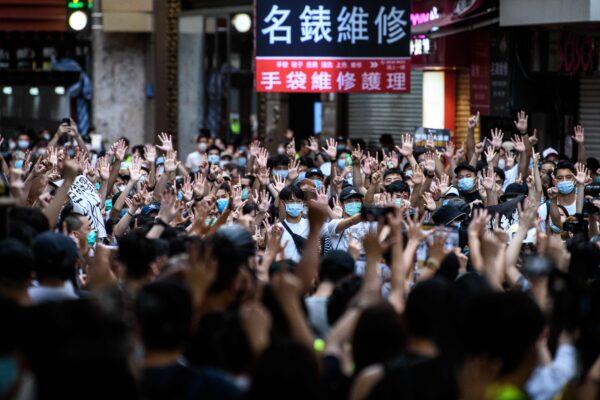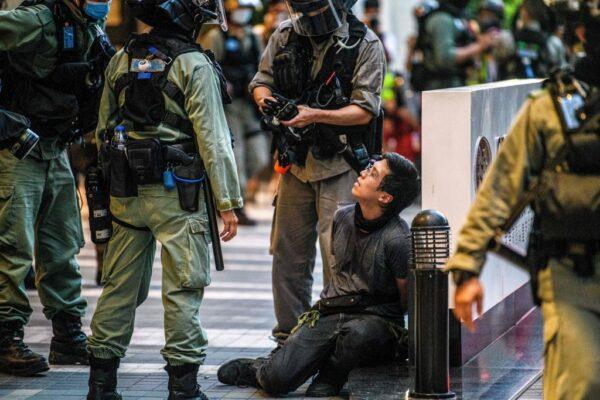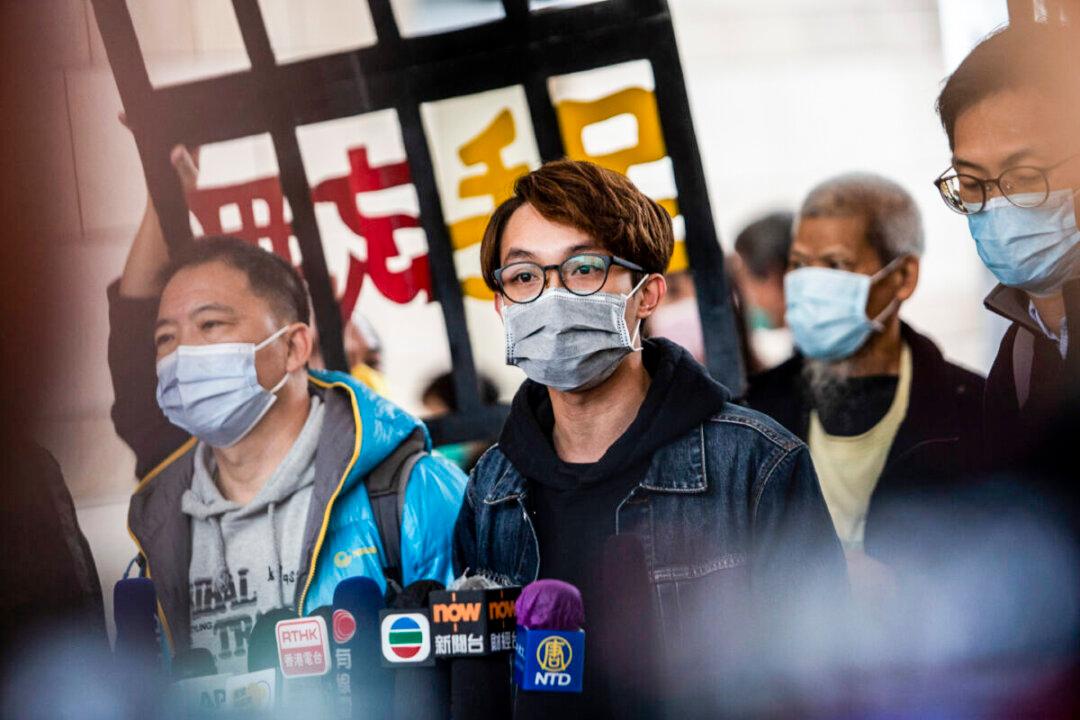A Hong Kong court jailed seven pro-democracy activists for up to 12 months on Oct. 16 over their involvement in an anti-government protest in 2020.
The activists include Figo Chan, a former convenor of the now-disbanded Civil Human Rights Front (CHRF); Tsang Kin-shing and Tang Sai-lai of the League of Social Democrats; former district councilor Andy Chui; and former legislators Wu Chi-wai, Eddie Chu, and Leung Kwok-hung.
Chan was sentenced to one year, while the others were given sentences ranging from six to 10 months.
A pro-democracy protest backed by CHRF drew a crowd of about 2 million people in 2019 who voiced their opposition to a later-scrapped extradition bill.
“We could only choose civil disobedience ... a peaceful, rational, and nonviolent way to express our demand against the national security law,” Chan said in mitigation.
“In order to uphold the belief of civil disobedience, I decided to plead guilty, admitting that I violated the ‘evil public order law.’”
Chan and two others were already behind bars for previous charges.
Protests that roiled the city started in June 2019, when the Hong Kong government sought to introduce a highly controversial plan that would allow extraditions to mainland China. The bill—deemed to be a further erosion of the city’s judicial independence—was officially withdrawn months later.

Yet the decision failed to halt widespread criticism among civil society, as protesters also wanted more fair elections and an inquiry into police brutality.
On July 1, 2020, large crowds swarmed the area of Causeway Bay, where the march was due to start. At least 370 people were arrested that day for illegal assembly and other offenses, with 10 involving violations of the national security law, according to police.
The day also marked the 23rd anniversary of the city’s handover from Britain to China.
According to the Security Bureau, more than 150 people have been arrested under the national security law. Among them, 100 people have been formally charged.

On Oct. 15, one of the city’s few independent English-language bookshops also closed its doors after the owner decided to leave the city with his family.




